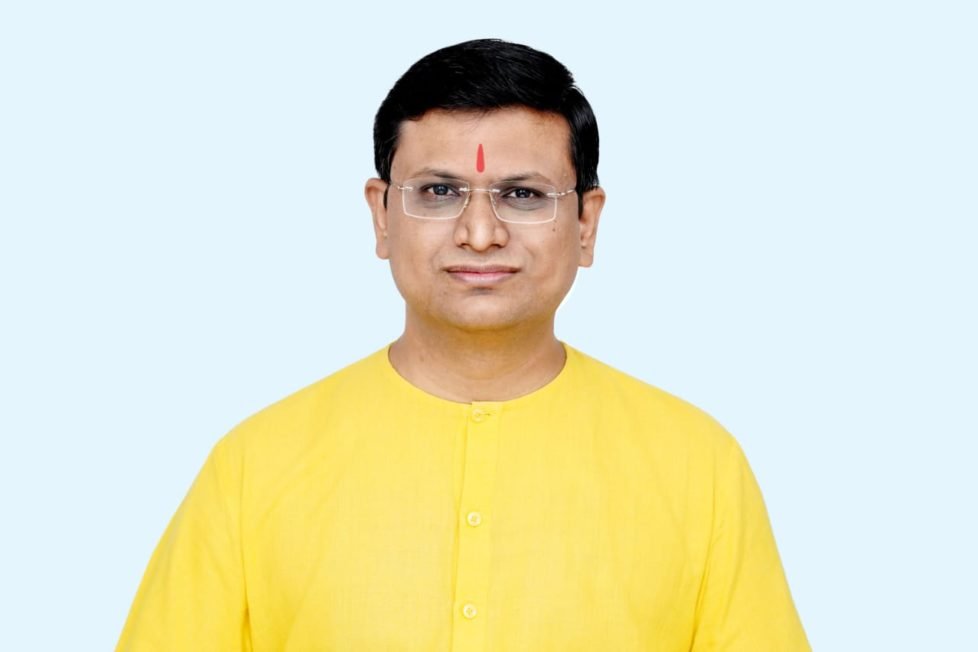Opposition to Hindi in Tamil Nadu : right or wrong ?


Union Minister for Home Affairs Amit Shah had stated in 37th meeting of Parliamentary Committee on Official Language that “Hindi can be an alternative to English and Hindi can be the official language of the country”. This statement was met with political opposition in Tamil Nadu. Tamil Nadu BJP also rejected the Shah’s statement. Here are some experiences in Tamil Nadu that raise the question ‘Is opposition to Hindi right or wrong ?’
Propaganda that the words from foreign languages assault Tamil language
For the past month, I have been travelling in Telangana, Andhra Pradesh, Tamil Nadu and Kerala to propagate Spirituality. While in Hyderabad, Mr. Raman Murthy, a scholar of Telugu literature, while discussing the use of Urdu words in Telugu language said, “To keep the Telugu language pure like Tamil language, bilingual standard should be adopted. Today in Tamil Nadu, Tamil and English are the two predominant languages in the business. Therefore, the Tamil language is pure.
Except in Tamil Nadu, the local Indian language, the national language Hindi and English are the three predominant languages in practice in India. Although I know that there is opposition to Hindi in the State of Tamil Nadu, I was a little relieved by the thought that ‘a policy can keep the original language pure’. However, after actually travelling in Tamil Nadu, I realized that Tamil Nadu has words from other languages. On the first day of the journey, it was noticed that the original Persian-Arabic word ‘jasti’ (More) was used for the word ‘adhik’ (Additional) in Tamil. After discussing this with the local seekers of Sanatan, it was learned that many such words became prevalent in Tamil. Therefore, it is a misconception that ‘bilingual policy has kept Tamil language pure’.
There is a misunderstanding that Hindi is the language of Aryans
The British ruled India with the policy of ‘divide and rule’. Through Christian missionaries, the British spread fabricated stories for the ‘Breaking India’, claiming that South India was different from North India. The British misled by saying that the North Indians are Aryans and South Indians are Dravidians. The culture, traditions, language, etc. of these two civilisations are different. Bhagawan Shriram who came from the North to kill Ravan was an Arya, while Ravana was a Dravidian. Therefore, Aryan and Dravidians have had mutual animosity. Unfortunately, this is still being promoted by the ‘Christo-Dravidian movement’. Under this propaganda, a misconception has been spread that ‘Hindi is the language of Aryans’.
In fact, ‘Arya’ is not a caste-denoting word but a cultural word. The word ‘Arya’ means ‘civilized’ or ‘gentleman’ In ancient times, all married women used to address their husbands as ‘Arya’. There is evidence in ancient literature that even Mandodari used to call Ravana by the word ‘Arya’. Therefore, it is ignorance to say that ‘North Indian means of Aryan civilisation’.
Also, the word Dravid is not racist, but provincial. The Southern part of India, especially the combined territory of the three states of Andhra Pradesh, Tamil Nadu and Kerala, was called Dravidian. Gurudev Rabindranath Tagore in the national anthem wrote ‘Jana Gana Mana’, ‘Punjab, Sindhu, Gujarat, Maratha. Dravid, Utkal, Vang .. ‘ while referring to various provinces of India. The word’ Dravid ‘is used for South India.
In short, like the Aryan-Dravidian myth, ‘Hindi is the language of the Aryans’, is also a misnomer.
Hindi-learning ‘patriots’ are Tamil speaking devout Hindus
On the day Amit Shah’s statement was published, I was in Chennai, the capital of Tamil Nadu. That morning, we visited the Vedic Research Center and met Mr. Balgautmanam. He publishes daily anti-Hindu and anti-India news in Tamil Nadu on his website and on social media.
This scholar tried to communicate with us in Hindi. While this dialogue was going on, the editor of his website informed us about political protests in Tamil Nadu which were sparked by Amit Shah’s remarks. He immediately explained the right role in this regard and stated the following aspects.
A. Mr. Amit Shah’s statement is not in reference to the Tamil language but to the official working language of the country.
B. ‘Hindi may be an alternative to English’ means that Hindi may be an alternative to the current English language of the country.
C. ‘Hindi can be an official language of the country.’ This means that Hindi may be the only working language of the governance of the country. In short, foreign English is now no longer needed.
D. Nowhere in the statement is there no hint about other regional languages or a conspiracy to finish those languages.
Loss caused to Tamil Nadu due to opposition to Hindi
I met a Gujarat businessman on a trip to Tamil Nadu. He had recently migrated from Maharashtra to Tamil Nadu. I asked them, what was the reason for coming so far from Maharashtra for trade ? The answers he gave were important. He said, “This State of Tamil Nadu is at least 10 years behind the rest of the States. New techniques and technologies are developed in trade in other States; the people here cannot learn them due to language barrier. Therefore, the technology which is developed in India takes 10 years to reach Tamil Nadu. Until then, the traders like us come here with the new technology from other States and continue our trade. We have also mastered the Tamil language. Today, Telugu, Marwari and Gujarati account for 75% of the tradesmen in Tamil Nadu”. He further said, “People from Tamil Nadu who go anywhere in India for tourism are deceived due to language barrier.”
After hearing this frank experience, the question arose in my mind, ‘What did the politicians of Tamil Nadu gain by opposing Hindi only for political gain ?’.
Chetan Rajhans, National Spokesperson, Sanatan Sanstha
DISCLAIMER: The author is solely responsible for the views expressed in this article. The author carries the responsibility for citing and/or licensing of images utilized within the text.
